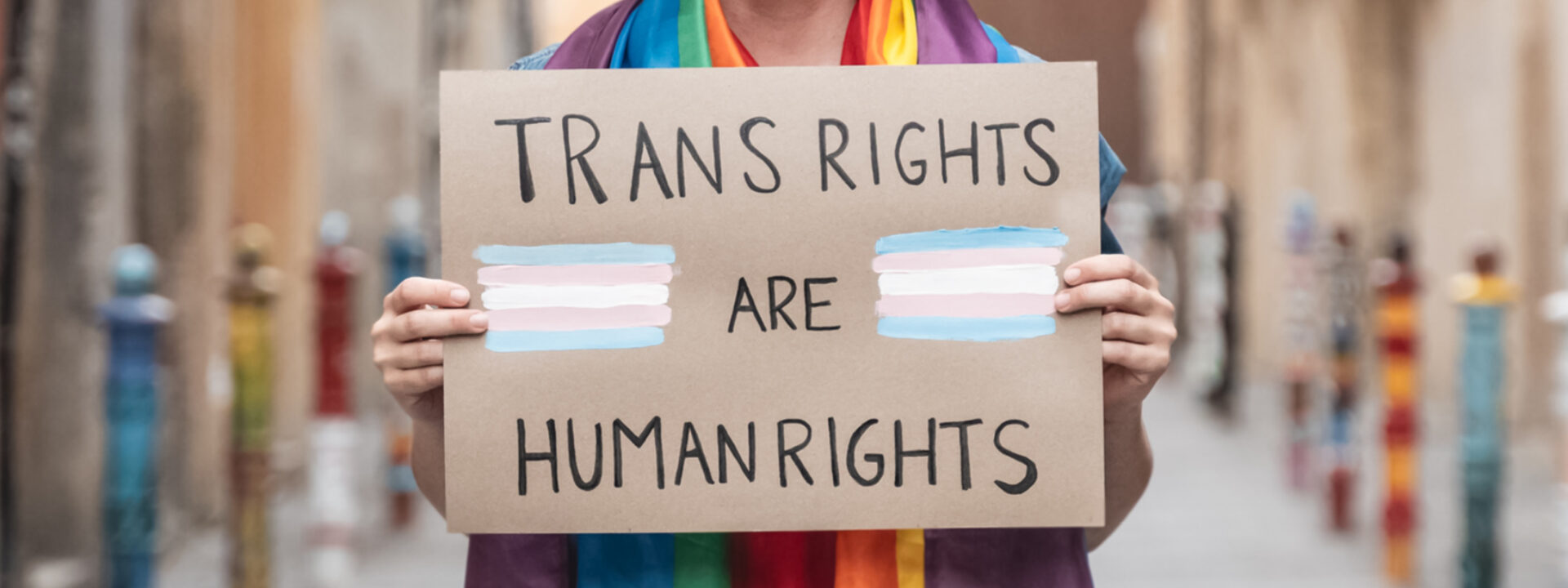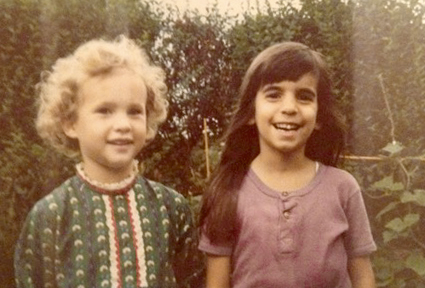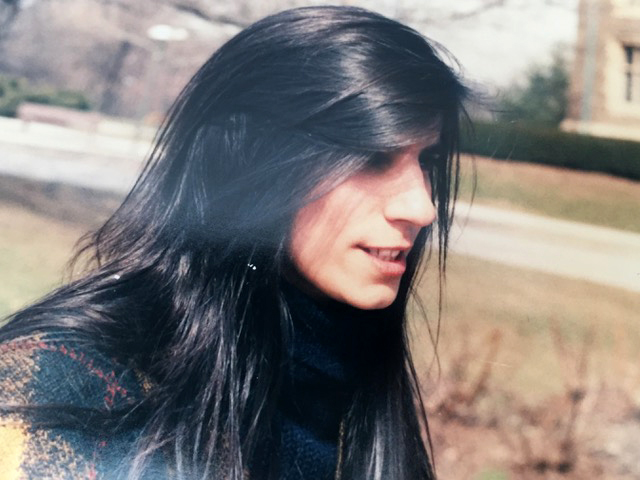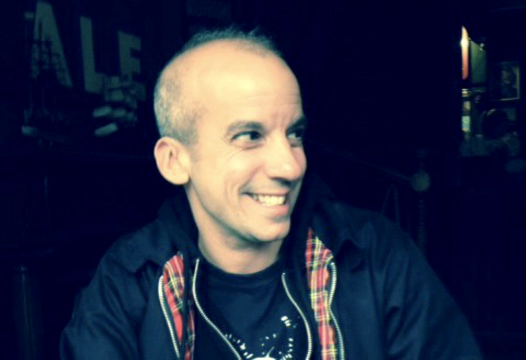I stepped into my true self at 40

After the death by suicide of student Bekett Noble, Redeemer University must own up to its responsibility and do better by its LGBTQ+ community, writes trans man and activist Cole Gately.
I’ve travelled around the sun almost 55 times. I’ll do the math for you; it means I’ve been alive since 1968, one year before the legendary Stonewall Riots in New York City where trans women of colour and others put their lives on the line to open the world’s eyes to despicable discrimination against 2SLGBTQ+ people.
By 1971, I knew who I was – and who I wasn’t. My sister was born just 17 months after me. My parents weren’t hippies, but my mother was a little more liberal than my dad, and considered herself somewhat of a Beatnik. Mum was a nurse, and Dad was a medical student, both working in London, England.
When I was three years old, I figured that I was a boy. My sister knew, without a shadow of a doubt, that she was a girl. She wore frilly dresses, played with Tiny Tears dolls, and as she grew, became a high school athlete and gymnast, outperforming all the girls in her year, and many of the boys.

I wasn’t athletic by any stretch of the imagination, preferring to lose myself in a book, learning with my grandfather, go exploring outdoors, finding shellfish and crabs in the rockpools of the Scottish seaside town where we grew up.
I was taller than my sister for about one year when I was 10 and she was eight. After that, she was always taller and still is. When I’d try to respond to her annoying poking, pinching or childish taunting, I’d always be overpowered by her arms, which were like rods of steel. She was stronger than anyone I knew. Her nickname was Suzi-Springs because she could run faster than anyone else in her age group.
In that cruel way that schools have of training kids to compare themselves with each other, I was always picked last to join a team. I hated playing field hockey because of the cold. I dreaded swimming lessons for the same reason. When I was five years old, I spent playtime (recess) shivering in the "girls’ shelter” until the bell rang, and we could go back indoors.
I was a delicate flower, and I still am when it comes to athletics, working out, getting wet or being in the cold. Does this have to do with gender? Are all boys athletic, strong, and love the cold? No, of course not.
One of the worst statements parents and other adults can say to a young boy on the verge of tears is “big boys don't cry!” That is not true. Big boys do cry, and they need to be crying a lot more, but they’re too ashamed – shamed – to express it. I believe that if boys and men were allowed to cry, the world would be so much safer for women, children, and other men. We have feelings, hearts, and tear ducts. When a man is shamed into not crying, his emotional release is either turned inward, or expressed through violence. Neither of these options are acceptable, and most men who perpetrate violence live with low self-esteem and would rather be happy.
When I was six, in 1974, my babysitter insisted that I wear a dress to Sunday school and she put my long hair up in bunches. In tandem with my own chagrin, I will never forget the confusion and horror on my classmates’ faces when they saw me that day. They giggled out of nervousness; I was humiliated. What was I – clearly a boy – doing wearing a flowery dress and looking like a girl? While my sister was more athletic and taller than me, she was certain of her gender identity: all girl, all the time.
Yet, who was I? Or, more precisely, what was I?
Of course, none of us had the vocabulary or gender awareness to make sense of any of this. Being assigned female at birth, everyone referred to me using she and her pronouns, but at the same time they didn’t register me as one of the girls, despite my lack of masculine prowess and my feminine name. My mum knew that buying me dolls, making me wear dresses, or giving me stuffed toys would be a waste of time and money.

“Transgender” was not in our vocabulary; for that matter, neither was the word “gender.” There were “transvestites” and “transsexuals” but they lived in a far-off land called America, an almost mythical place where no one was real.
At puberty, I began to think of my body as simply a vessel for my “Self.” I was in it, but I was not of it.
To this day, I have treated my body as a shell, like the hermit crabs I used to find on the shores of my hometown. It houses me, and it makes me visible. I express myself through my body, but the real me is unseeable.
I’m almost 55 years on the planet and I have been part of history marching on, as it is wont to do, despite my ancestry, my learnings as a child, my values and beliefs, my wishes and fantasies. I can influence change, but I cannot dictate it. I have witnessed shifts in human understandings of the universe, and I have been surprised by most people’s refusal to recognize that the universe is unfathomably bigger than us. Who am I to challenge the mysteries of existence by insisting that my understanding of the human condition is the only true and legitimate one? Who is any of us to be so presumptuous?
The past two weeks have been extraordinarily difficult for many of us who have been living in an environment where self-appointed arbiters of “normality” are behaving in ways that belie their own definition of “normal.” I am speaking of those who terrorize drag queens and children by staging targeted demonstrations spewing hate and nonsensical vitriol outside public libraries, as happened at Terryberry Library in Hamilton recently. I am also speaking of Redeemer University, a private Christian Reformed university that experienced a suicide by an intelligent, generous and gentle student named Bekett Noble, who penned a letter just before dying, petitioning the university to do better by its LGBTQ+ students and faculty.
Bekett was a member of a group of Redeemer students, alumni and faculty, including allies, who two years ago wrote heart-wrenching testimonials and suggestions for change to Redeemer’s leaders about the hate, fear, threats and vilification they experienced and witnessed at the university – by fellow students, faculty and administration. It is called the Rainbow Report.
Noble indeed.
Redeemer receives donations and tuition fees from people who believe in an all-loving God. They believe that every human being is made in God’s image. They disingenuously promote the teachings of Jesus, who, I have absolutely no doubt, would be ashamed of them if He were here today. The administrators of the university fear the wrath and disengagement of donors.
Shame.
As yet, a week since Noble’s death, Redeemer has failed to make any meaningful statement about its participation in the systematic exclusion and marginalization of people who are simply trying to live their lives and do the best they can for their churches, families, and communities.
After 40 years, I finally worked up the courage to express my true and authentic self. I asked my family physician to prescribe me testosterone, something she had not done before, so we learned together. I embraced my masculinity while also honouring my unique experiences as a woman by sorting through the complexity of identity in a world that prefers to categorize people according to unnatural and unscientific rules about who’s who.
It’s been 15 years and the only regret I have is not having taken the leap into my authentic gender identity before. At the same time, I do not regret the privilege of having been able to view the world through a woman’s lens. It gave me perspective, and helped me to understand that these rules are manufactured and enforced by those who are not in tune with their own humanness in its full complexity.

I have been saved, not by Christians who would decide my merit, but by my inclusion in the beautiful, complex, and constantly evolving community of living beings.
The universe is mysterious. God’s existence, unknowable. No human being can possibly know another person’s truth, or step into their shoes. I am sure that no one at Redeemer dreamed their actions – and inaction in the face of hate – would result in a death of one of their own. Now is the time to wipe the scales from their eyes, own up to their part, and enact God’s mission to love and let love.
Cole Gately is an adult educator from Hamilton. He has an MA from Ontario Institute for Studies in Education (OISE) at University of Toronto and a Bachelor of Arts from McMaster University. He has lived in and been active in Hamilton since the late 1980s, focusing on anti-racism, feminist and 2SLGBTQ+ organizing, homelessness intervention, and inclusion. He divides his time between Europe and Ontario.






